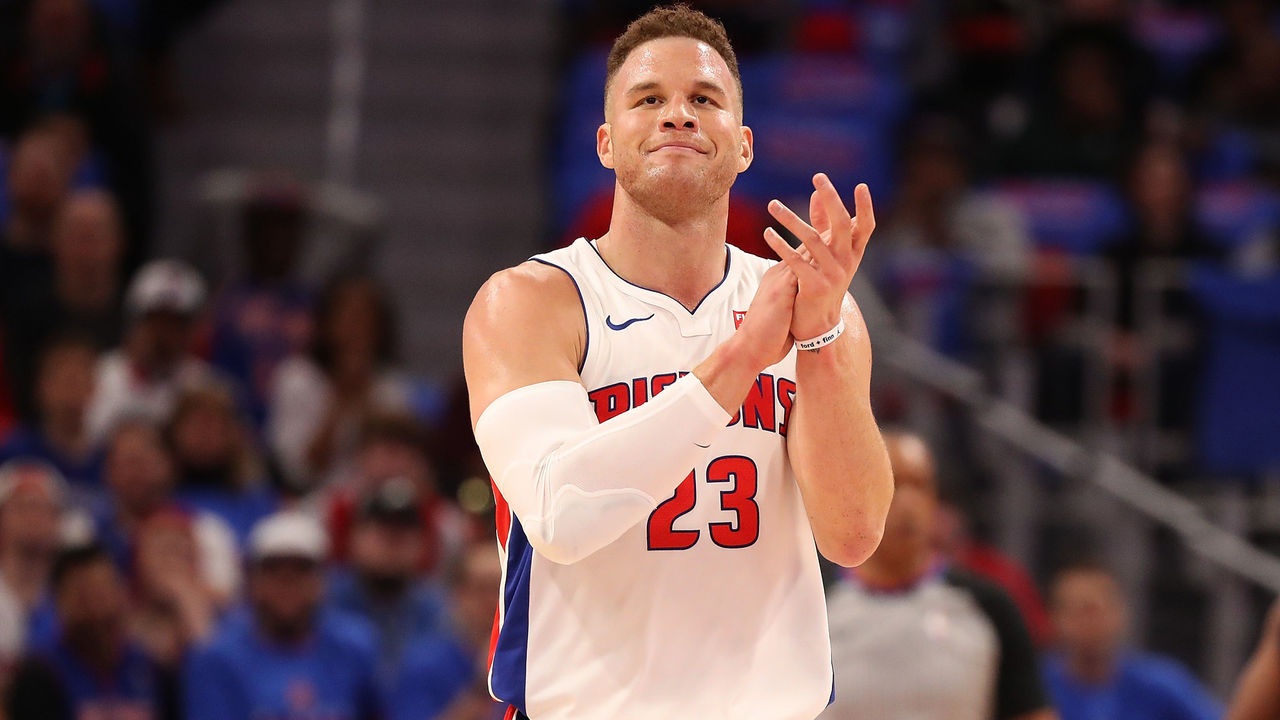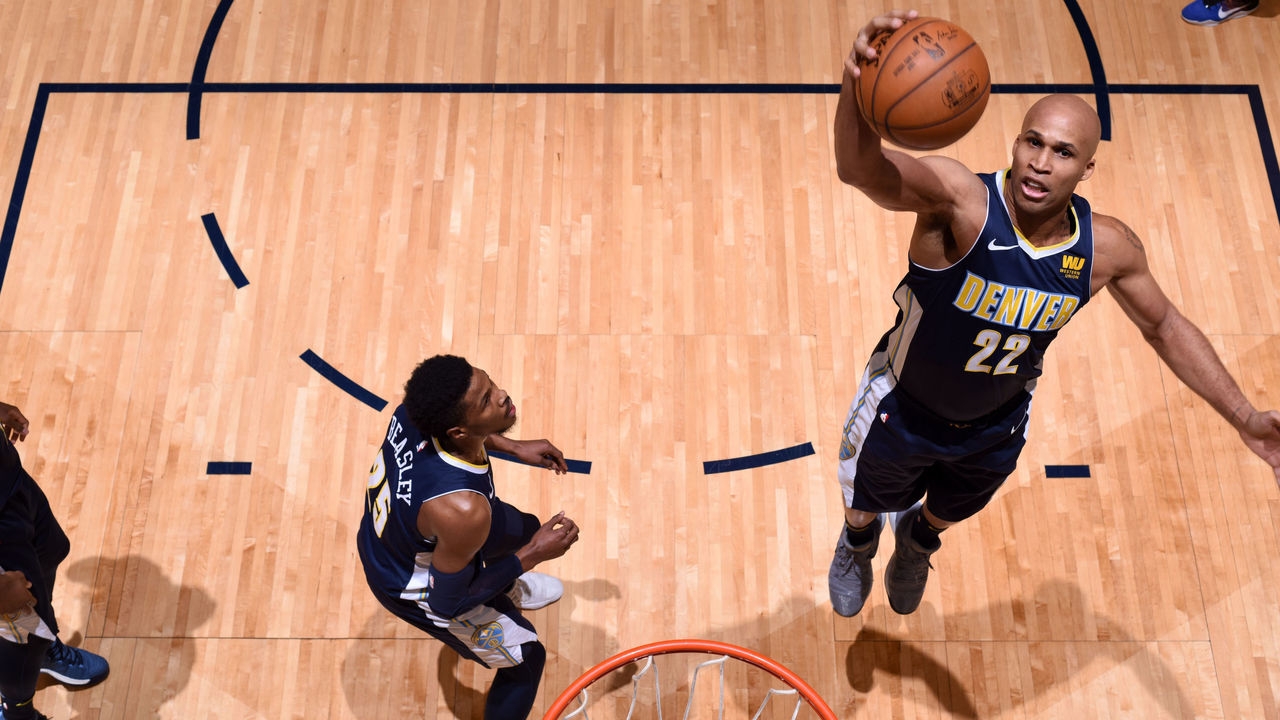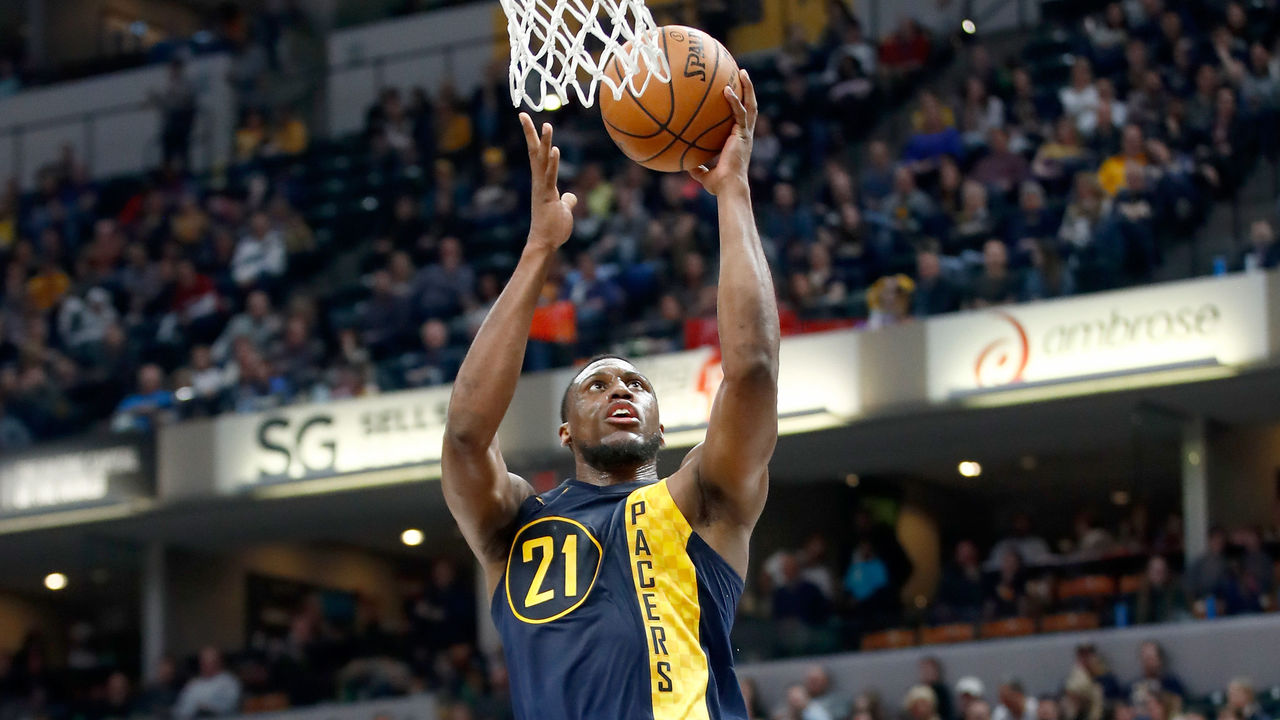NBA players dish on their postseason habits
When the NBA Playoffs start next weekend, players around the league will get very serious for what they hope will be a two-month grind that ends with a championship.
Around the league, you'll hear players talking about locking in so they can give 110 percent on the court. But, what exactly do they do when the postseason starts?
For some, it's actually business as usual. Jameer Nelson has played in 44 career playoff games and helped lead the Orlando Magic to the 2009 NBA Finals. The 36-year-old point guard, now with the Detroit Pistons, does not believe in changing too much about his everyday routine once the playoffs arrive.
"I do the exact same things that I would do in the regular season," Nelson told theScore. "I don't change. If I go out the night before a game, I'll go out the night before a game in the playoffs. If I watch a movie the night before a game, I'll watch a movie the night before a game in the playoffs.
"You can live your life, and enjoy your life (in the playoffs), you just have to be smart about it."
Blake Griffin, who has 51 games of playoff experience, all with the Los Angeles Clippers, has a slightly different approach. He says the postseason is all about accepting how mundane the everyday routine can be.

"I get treatment, go home and I watch film," Griffin said. "It’s a boring routine. But in the playoffs, it's necessary."
Regardless of one's preference, staying focused will always be a challenge. Nate McMillan has appeared in more than 100 playoff games across his playing and coaching careers, and says it's all about being ready to perform at a high level.
"You're trying to eliminate as many distractions as possible,” McMillan said. "There are a lot of things that are happening in these guys' lives during the regular season, and you hope all of that is taken care of so they can focus on getting their rest mentally and physically preparing themselves."
A common move by players around the league is to stay away from social media when the postseason starts. LeBron James, in particularly, has started to announce annually at the start of the playoffs that he's going dark on social media, a mode he's nicknamed "Zero Dark Thirty-23."
Similarly, Griffin has learned that nothing positive comes from seeing what fans think about his postseason performances.
“I don’t read my Twitter mentions at all during the playoffs," he said.
For some players, locking in also means watching a lot of basketball.
"I'll usually be watching the other games," Griffin said. "It takes my mind off all the film and walk-throughs that we have to prepare for our own series."
Social media isn't the only place where players will find distractions. Often, they come from the people closest to them. Friends and family want to be part of the playoff experience. Some are there because they want to be supportive, while others just want to be part of the festivities.
"You have different family members that will want to stay with you for longer periods of time," Nelson said.

Richard Jefferson has played in 140 playoff games with five different teams, and he learned during his championship run with the Cleveland Cavaliers in 2016 about the importance of being honest with family members.
"You can't have ten people staying at your house just because it’s the playoffs," Jefferson said. "You can't do that just because everyone wants to enjoy the experience with you."
During the 2016 playoffs, Jefferson’s parents and two brothers were allowed to partake in the experience, and were frequently at playoff games. But Jefferson also set ground rules for when he needed to be by himself.
"After you lose a playoff game, you need to be in your own space," he said. "Your parents have to understand that. They have to understand this is a job."
However, family isn't always a distraction. Jason Terry, who's played in 121 playoff games, finds that being around his kids helps him relax during the postseason. Terry also believes it's important to be around teammates.
"Just going out for team dinners and doing more things as a team, so we can just focus on talking about basketball," he told theScore.
When he's not at home with his kids or hanging out with teammates, Terry prefers to hit the golf range when he has downtime during a postseason run. "I won't play a full round at the course," he said, "but I'll go and hit some balls. Every shot I'm taking at the range, I'm thinking about where my shots are coming from in the next game. I'm thinking about the guy who has been guarding me all series."
It seems, no matter what else players try to do, that basketball is very much on their minds during the postseason. It's inescapable because the playoffs are very much like a final exam that they've spent six months preparing for.

Indiana Pacers forward Thaddeus Young has appeared in 40 career playoff games. He says the nature of a series makes it easier to know what to expect from the other team.
"The scouting reports are more detailed," Young said. "You're able to pick apart a lot of tendencies. Things that the other team likes to do over the course of a game, whether it is coming out of a timeout or coming out of halftime. It really makes coaches have to dig deep into their arsenal and figure out how they're going to get certain plays and schemes to work."
"It goes up ten times," Young added. "Tempers flare, things get physical, referees let a little bit more go, it turns into an ultimate battle out there. The atmosphere does get a little bit crazy."
Meanwhile, Jefferson rejects the common notion that every team slows their pace down once the playoffs start.
"Teams don't play slower," he said. "It's just good teams don't turn the ball over and they make fewer mistakes. There’s nothing but good teams in the playoffs, that's why the game slows down, because you have teams that know how to execute."
However, Jefferson does agree with Young about the intensity of the postseason, and he's had a lot of sleepless nights to prove it.
"The adversity, the intensity, your sleeping patterns get messed up," Jefferson said. "Everything goes sideways."
Young has no such trouble.
"If I need sleep (during the postseason), I just take two pills of Melatonin, lay down, turn my phone on silent, and get my eight hours of rest," he said.
Ultimately, the most important part of a player's preparation for the postseason might be perspective.
"You don’t want to be too tense, too tight, or put additional pressure on yourself in the playoffs," Nelson said. "It’s still just a game."
Alex Wong is an NBA freelance writer whose work has appeared in GQ, The New Yorker, Vice Sports, and Complex, among other publications.
(Photos courtesy: Getty Images)
HEADLINES
- Jokic calls out Dort for 'unnecessary' foul after chippy contest
- Pistons outlast short-handed Cavaliers in OT after blaring horn delay
- NBA's 65-game rule ruined MVP race, OKC's depth shines, Jokic rolls
- Want to stop NBA tanking? Get rid of the draft
- Thunder top Nuggets in testy affair despite resting Gilgeous-Alexander in OT